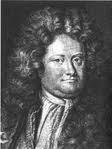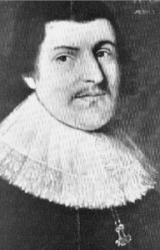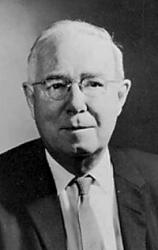Planning worship?
Check out our sister site, ZeteoSearch.org,
for 20+ additional resources related to your search.
- |
User Links
Person Results
‹ Return to hymnal



Export as CSV
Friedrich von Canitz

1654 - 1699 Person Name: Friedrich von Canitz, 1654-1699 Hymnal Number: 32 Author of "Come, My Soul, Thou Must Be Waking" in Hymnbook for Christian Worship Friedrich Rudolph Ludwig von Canitz, German poet and diplomant, was born at Berlin, November 27, 1654. He studied at the universities of Leyden and of Leipzig. After extensive travels in Europe, he was appointed groom of the bedchamber to the elector Frederick William of Brandenburg. In 1680, he became councilor of legation, then privy councilor, and was finally created a baron of the empire. He died in Berlin on August 11, 1699. His poems, which did not appear until after his death, are for the most part dry and stilted, based upon Latin and Greek models, but they were, nevertheless, a healthy influence and counterbalance to the coarseness of contemporary poetry. The spiritual poems, 24 in number, are his best work. They were first published anonymously after his death, edited by Joachim Lange as Nebenstunden unterschiedener Gedichte, 1700.
--The Hymnal 1940 Companion
=====================
Canitz, Friedrich Rudolph Ludwig, Freiherr von, son of Ludwig v. Canitz, privy and legal counsellor at Berlin; was born at Berlin, Nov. 27,1654, a few months after his father's death. After studying at the Universities of Leyden and Leipzig, he made in 1675-77 a tour in Italy, France, England, and Holland. In 1677 he was chosen gentleman of the bedchamber by the Elector Friedrich Wilhelm, and accompanied him in his campaigns in Pomerania, &c. He was then, in 1680, appointed chief magistrate of the district of Zossen and Trebbin, in the Mittelmark, and in 1681 counsellor of the Court and Legation. After a successful embassy to Frankfurt, 1682, he was appointed in 1683 chief magistrate of Miihlenhoff and Muhlenbeck. He executed many important missions under Friedrich Wilhelm and his successor Friedrich III., was a privy counsellor, and received in 1698 the dignity of Baron from the Emperor Leopold I. He died at Berlin, Aug. 11, 1699 (Koch, iv. 238-248; Allg. Deutsche Biographie, iii. 756, the latter dating his death Aug. 1). His hymns were first published posthumously, and without his name. They were edited by Dr. Joachim Lange, Rector of the Berlin Gymnasium, as Nebenstunden unterschiedener Gedichte, Berlin, 1700. Of the 24 religious poems, only 2 have continued in German common use, viz.:—
i. Gott, du lässest mich erreichen. Evening. 1700, as above, p. 6, in 6 stanzas. Translated as: "Father! hear me humbly praying" (beginning with st. ii. "Neige dich zu meinen Bitten "), by H. J. Buckoll, 1842, p. 99.
ii.. Seele du musst munter werden. Morning. This beautiful hymn, the mirror of his life, was first published 1700 as above, p. 3, in 14 stanzas of 6 lines. Included as No. 795 in Freylinghausen's Neues geistreiches Gesang-Buch, 1714, and as No. 471 in the Unverfälschter Leider 1851. The translations in common use are:—
1. Come, my soul, thou must be waking. A very good translation by H. J. Buckoll, omitting stanzas ii., iv., viii., given in a note at p. 456 of Dr. Arnold's Christian Life: its Cause, its Hindrances, and its Helps. London, 1841. The note is to a passage in Sermon vi., on Col. iii. 3, dated March, 1840, in which Dr. Arnold says:—
”Some may know the story of that German nobleman [v. Canitz] whose life had been distinguished alike by genius and worldly distinctions, and by Christian holiness; and who, in the last morning of his life, when the dawn broke into his sick chamber, prayed that he might be supported to the window, and might look once again upon the rising sun. After looking steadily at it for some time, he cried out, "Oh! if the appearance of this earthly and created thing is so beautiful and quickening, how much more shall I be enraptured at the sight of the unspeakable glory of the Creator Himself." That was the feeling of a man whose sense of earthly beauty bad all the keenness of a poet's enthusiasm, but who, withal, had in his greatest health and vigour preserved
the consciousness that his life was hid with Christ in God; that the things seen, how beautiful soever, were as nothing to the things which are not seen (p. 61).
Of the translation Dr. Arnold says, "For the greatest part I am indebted to the kindness of a friend," which means that portions (viz. st. i., 11. 1-3, and one or two expressions) are taken from the anonymous version of 1838 (see below). In 1842 Buckoll included it in his Hymns from the German, p. 36, altering stanza iii. 1. 3, xii. line 1. 1-3, and xiii. It is the text in Dr. Arnold's sermons which has passed into common use in the following forms, the references being to the translation of the German stanzas.
(1) St. i., v.-vii., ix.-xi., American Episcopal Hymns for Church and Home, 1860, altered.
(2) St. i., vi., vii., ix.-xii., in the Salisbury Hymn Book, 1857, and Kennedy, 1863. The Anglican Hymn Book., 1871, and the Evangelical Hymnal, N. Y., 1880, omit st. xii.
(3) St. i., vi., vii., ix.,xi., xii., considerably altered and with an added doxology in Sarum, 1868. This text in full, or abridged, is found in Church Hymns, 1871; Hymnary, 1872; Stevenson's Hymns for Church and Home, 1873; Baptist Hymnal, 1879, and others; and in America in the Episcopal Hymnal, 1871; Laudes Domini, 1884.
(4) St. i., vi., vii., ix.-xii., xiv., in Harrow School Hymn Book., 1855,1866; Marlborough College, 1869, &c.
(5) St. i., vii., ix., xi., with an added stanza in Book of Common Praise, 1863; and in G. S. Jellicoe's Collection, 1867.
2. Come, my soul, awake, 'tis morning. A good translation, omitting stanzas ii., iv., viii., by Miss Winkworth in her Lyra Germanica, 1855, 1st series, p. 210, and thence, retaining only the translations of stanzas i., vi., vii., xi.-xiii., in her Choral Book for England, 1863.
Another translation is:—
"Come, my soul! thou must be waking," in the British Magazine, July, 1838, p. 21. From this, st. i., 11. 1-3, and one or two expressions were adopted by Buckoll. [Rev. James Mearns, M.A.]
--John Julian, Dictionary of Hymnology (1907)
Friedrich von Canitz
Henry Lawes

1596 - 1662 Person Name: Henry Lawes, 1596-1662 Hymnal Number: 154 Composer of "FARLEY CASTLE" in Hymnbook for Christian Worship Born: January 5, 1596, Dinton, Wiltshire, England.
Died: October 21, 1662, London, England.
Buried: In the cloisters of Westminster Abbey, London, England.
Lawes, tutor to the daughters of the Earl of Bridgewater, is best known as a composer. He became a Gentleman of the Chapel Royal in 1626, and a member of the "King’s Musick" in 1631. He wrote over 400 vocal pieces, as well as anthems and instrumental compositions. His works include:
Choice Psalmes Put into Musick for Three Voices, 1648
Ayres and Dialogues (London: 1653)
Sources:
Frost, p. 680
Hughes, pp. 467-68
Nutter, p. 460
Stulken, p. 292
--www.hymntime.com/tch
Henry Lawes
Frank Fletcher
1870 - 1954 Person Name: Frank Fletcher, 1870-1954 Hymnal Number: 147 Author of "O Son of Man, Our Hero Strong and Tender" in Hymnbook for Christian Worship Educated at Balliol College, Oxford, served as Assistant Master at Rugby (1894-1903), Master of Marlborough College (1903-11) (the first layman to hold that post), and Headmaster of Charterhouse, Godalming (1911-35). He was knighted for his distinguished career.
--www.hymntime.com/tch/
Frank Fletcher
Daniel B. Merrick
1926 - 2004 Person Name: Daniel B. Merrick, Jr., 1926- Hymnal Number: 18 Author of "O God Whose Love Compels Us" in Hymnbook for Christian Worship Merrick Daniel B. (Bloomington, Illinois, April 29, 1926--November 11, 2004). Married Dagmar Gustafson in 1952 while a student at Phillips Theological Seminary (A.B., 1948; B.D., 1954); three children. Served churches in Sandoval, Ill.; Milwaukee, Wisconsin; Panama Canal Zone; Peoria, Illinois; and Havana, Ill. Won his first hymn writing contest in the mid-1950s. The hymn "O God whose Love Compels Us" was a winning entry for a theme hymn for the American Baptist convention in 1967.
Edited the Chalice Hymnal for the Christian Church (Disciples of Christ).
--DNAH Archives
Daniel B. Merrick
Leo Sowerby

1895 - 1968 Person Name: Leo Sowerby, 1895-1968 Hymnal Number: 318 Composer of "PERRY" in Hymnbook for Christian Worship Leo Sowerby (1895-1968) was born in Grand Rapids and studied at the American Conservatory of Music, Chicago (M.A. 1918). He served as regimental bandmaster with the 332nd Field Artillery Band in both England and France (1917-1919). He became the first fellow of the American Academy in Rome, where he studied for three years. He participated in the Salzburg Festival for Contemporary Music in 1923. From 1924 to 1963 he was on the faculty of the American Conservatory. He also was organist and choirmaster of St. James Church (1927-1963). Sowerby had an interest in folk music which he turned into wonderful compositions. He won a Pulitzer Prize for his Canticle of the Sun (1946). He died at Port Clinton, Ohio.
--Presbyterian Hymnal Companion
Leo Sowerby
Grace Wilbur Conant
1858 - 1948 Person Name: Grace Wilbur Conant, 1880-1948 Hymnal Number: 219 Composer of "FEALTY" in Hymnbook for Christian Worship Pseudonym: A. B. Ponsonby.
Born: September 9, 1858, Boston, Massachusetts.
Died: April 7, 1948, Malden, Massachusetts.
Grace remained single all her life. Her middle name was her mother’s maiden name. She served as musical editor for the Kindergarten Review for at least six years, starting in 1908. Her works include:
Songs for Little People, with Frances Weld Danielson (Boston, Massachusetts: The Pilgrim Press, 1905)
Worship and Song, with Benjamin S. Winchester (Pilgrim Press, 1913)
Religious Dangers of Modern Tendencies in So-Called Religious Songs, 1917
Song and Play for Children, with Frances Weld Danielson (Pilgrim Press, 1925)
--The Cyber Hymnal
Grace Wilbur Conant
Jean Fraser
Hymnal Number: 153 Translator of "Most Wondrous Is of All on Earth" in Hymnbook for Christian Worship
Jean Fraser
Phillip E. Gregory
1886 - 1974 Person Name: Philip E. Gregory, 1886- Hymnal Number: 368 Author of "Jesus, Friend, So Kind and Gentle" in Hymnbook for Christian Worship Philip was born in Chelsea, London England in Feb 1886. He moved to the US in 1908, and became a Congregational Church minister. He appears to have served in Wisconsin, Illinois, Minnesota and possibly also California. He married Harriet Thon of Steele MN, and had one son, Bruce. Philip died in Orange County CA on the 14th of June 1974, and is buried in Pacific View Memorial Park in Corona del Mar.
================
Rev. Phillip E. Gregory was pastor of the Congregational Church at Boscobel, Wis. (1912)
The Expositor and Current Anecdotes, Volume 13
Phillip E. Gregory
Kristian Østergaard
1855 - 1931 Person Name: Kristian Ostergaard, 1855-1931 Hymnal Number: 249 Author of "That Cause Can Neither Be Lost nor Stayed" in Hymnbook for Christian Worship Kristian Ostergaard (February 5, 1855 - October 9, 1931) was Danish-American Lutheran pastor, educator, author and hymn writer.
Wikipedia article
Kristian Østergaard
Horace Westwood
1884 - 1956 Person Name: Horace Westwood, 1884- Hymnal Number: 431 Author of "Spirit of Truth, of Life" in Hymnbook for Christian Worship Westwood, Rev. Horace, D.D. (Wakefield, Yorkshire, England, August 17, 1884--December 24, 1956, Clearwater, Florida). Emigrating to the United States, he served in the Methodist ministry for several years, and after 1910 served as minister in Unitarian churches in Youngstown, Ohio; Winnipeg, Canada; Toledo, Ohio; and extensively as a mission preacher. His hymn in one stanza, "Spirit of Truth, of Life, of Power" (1922) was included in Hymns of the Spirit (1937), and he privately printed a small collection, Some Hymns and Verses (n.d.), a few of which appeared in periodicals, but have not had wider use.
--Henry Wilder Foote, DNAH Archives
Horace Westwood


 My Starred Hymns
My Starred Hymns


